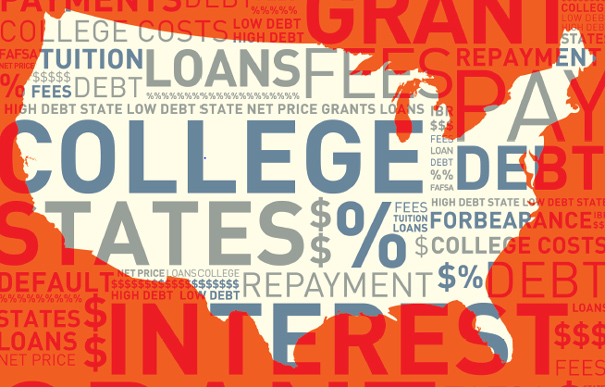The latest annual report from the Institute for College Access and Success shows student debt levels continuing to rise for graduating college seniors. The report, which does not include for-profit colleges, estimates that 66% of all graduating seniors held student debt, with an average of $26,660 per graduate – a five percent increase from 2010.
Notably, Washington state is listed as a “Low-debt state” with an average student debt of $22,244. This increase is nearly imperceptible from the previous year’s average of $22,101. New Hampshire remained atop the list of “High-debt states” for 2011, with an average graduate debt of $32,440.
Students from the class of 2011 also face a daunting job market. The unemployment rate of young college graduates was 8.8% in 2011, a slight drop from 2010’s record high of 9.1%. But in spite of high student debt, college graduates often remain better off than those without degrees. The unemployment rate for young high school graduates was 19.1% in 2011, more than double the rate for those with bachelor’s degrees.
Here are a few recommendations from the report’s authors:
Among the report’s main recommendations are for the federal government to provide key information that students and families need to make wise decisions, including the average debt at graduation at all colleges that receive federal funding; to reduce the need to borrow by increasing need-based grant and tax aid; and to curb unnecessary risky borrowing by requiring school certification of all private loans.
“Voluntarily reported data is all that we’ve got to shed light on how debt at graduation varies from school to school and year to year. Students need reliable information for all schools, and colleges that consistently and accurately provide their own debt figures deserve a level playing field,” said the report’s primary author Matthew Reed. “Twelve percent of the colleges that reported debt data for 2010 didn’t report for 2011, and virtually no for-profit colleges reported at all. The need for federal collection of key debt information at all colleges could not be more clear. ”
More To Read
September 24, 2024
Oregon and Washington: Different Tax Codes and Very Different Ballot Fights about Taxes this November
Structural differences in Oregon and Washington’s tax codes create the backdrop for very different conversations about taxes and fairness this fall
September 10, 2024
Big Corporations Merge. Patients Pay The Bill
An old story with predictable results.
September 6, 2024
Tax Loopholes for Big Tech Are Costing Washington Families
Subsidies for big corporations in our tax code come at a cost for college students and their families

